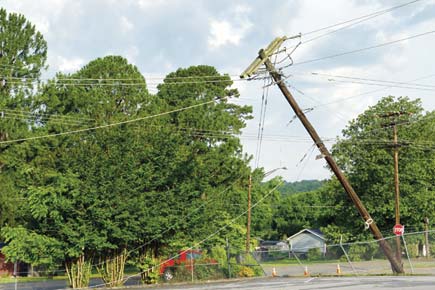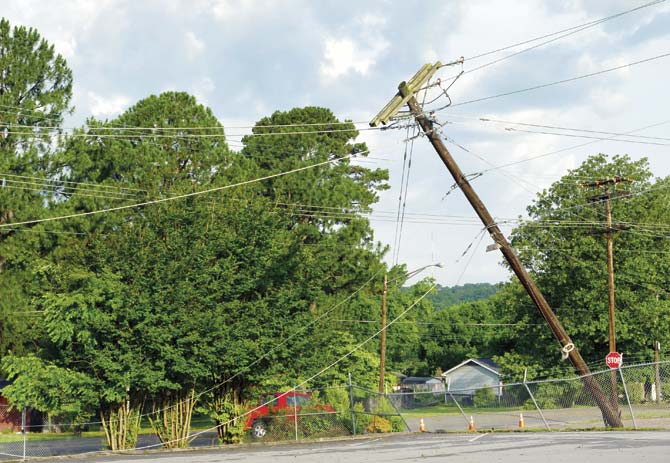Suburbia is where the developer bulldozes out the trees, then names the streets after them, said the American writer William Vaughn

 Suburbia is where the developer bulldozes out the trees, then names the streets after them, said the American writer William Vaughn. But that’s a big city problem. Here in Dehradun, nestled as it is in the foothills of the Himalayas with nature staring down at you everywhere, developers and buyers have other ideas. Historic if you will, or Neo-colonial Nostalgia, if you want to be specific.
Suburbia is where the developer bulldozes out the trees, then names the streets after them, said the American writer William Vaughn. But that’s a big city problem. Here in Dehradun, nestled as it is in the foothills of the Himalayas with nature staring down at you everywhere, developers and buyers have other ideas. Historic if you will, or Neo-colonial Nostalgia, if you want to be specific.
ADVERTISEMENT

In Dehradun, the power does get cut now and then. Sometimes, in case there’s a storm. Sometimes a tree falls on a power line... Sometimes, as the local electricity office informed the other day, a toilet falls on the wires. Representation pic/Thinkstock
New constructions and they are everywhere you turn are more likely to have names which include the words Imperial, Trafalgar, Grosvenor, Piccadilly and so on. There are heights everywhere and we’re not talking about the mountains. Although building regulations do not allow anything taller than seven storeys, an apartment block halfway up a mountain can logically call itself a height, surely. As long as there’s an imperial or some such in front of it...
But it is not all British colonial. A school adds a “Beverly Hills” to its name for no discernable reason. Pacific is also very popular as a prefix, though there is nothing resembling a sea or an ocean anywhere around Dehradun. To be honest, there’s not even a proper lake or river around. But we have Pacific malls, golf estates and heights. No one has thought of an Atlantic Heights yet, but perhaps it is just a matter of time.
Making an adjustment from big city to small town life is intriguing. For instance, I grumbled like mad when the garbage trucks arrived late when I lived in Mumbai. But what do I do when no one comes to collect the garbage at all, well especially, if you live in a village outside the municipal limits? It’s quite simple actually. You lug your rubbish to the nearest tip and hope desperately that someone collects it from there. There are strange little battles between local municipal councillors and residents who live within municipal limits. NGOs, evil as they may be — according to all governments anyway, try and keep the town as clean as they can with varying success levels.
The monsoon has just about arrived here. And it can rain, some say that up in these hills, the rainfall exceeded Cherrapunjee in its heyday. Still, local panchayats and councils and authorities follow their own drummers. Two days ago, truck loads of cement and stone were placed on our small village roads. Repair work they said. In one shower, half the materials have landed up in the next village — a problem, you can foresee, caused quite naturally by height and gravity but not, presumably, if you are a road contractor. Unless that is the point?
There are no real power cuts here. But the power does get cut now and then. Sometimes, in case there’s a storm. Sometimes a tree falls on a power line. Sometimes an earth mover cuts through the wires. Sometimes, as the local electricity office informed us the other day, a toilet falls on the wires. The mind boggles. These are not problems that a big city person can fully appreciate perhaps? Before you ask, no aeroplanes fly overhead. Between the bird calls, all you can hear though are bulldozers.
And yet, we have our self-service stores which bring us goodies from Delhi. We have restaurants which serve more than channa-bhatura and tandoori chicken. We now have shopping malls too, which carry just about every big international brand. We have traffic jams when hysterical tourists crawl up the hills to Mussourie every weekend. We have a super-fancy senior-living facility just down the road from us. And we even have not one, but two super-speciality hospitals. And hundreds of world-famous and not-so famous schools.
What we don’t have yet are sprawling slums, and that’s a boon of sorts. It is true that more and more litchi orchards will be cut down to make more Grosvenor Squares. It is a sad fact that we have absolutely no public transport to speak of. There is a slim chance that Dehradun will become a “smart city” in the prime minister’s new scheme. Right now, we’re smart but we’re not a city...
We are a height.
Ranjona Banerji is a senior journalist. You can follow her on Twitter @ranjona
 Subscribe today by clicking the link and stay updated with the latest news!" Click here!
Subscribe today by clicking the link and stay updated with the latest news!" Click here!







